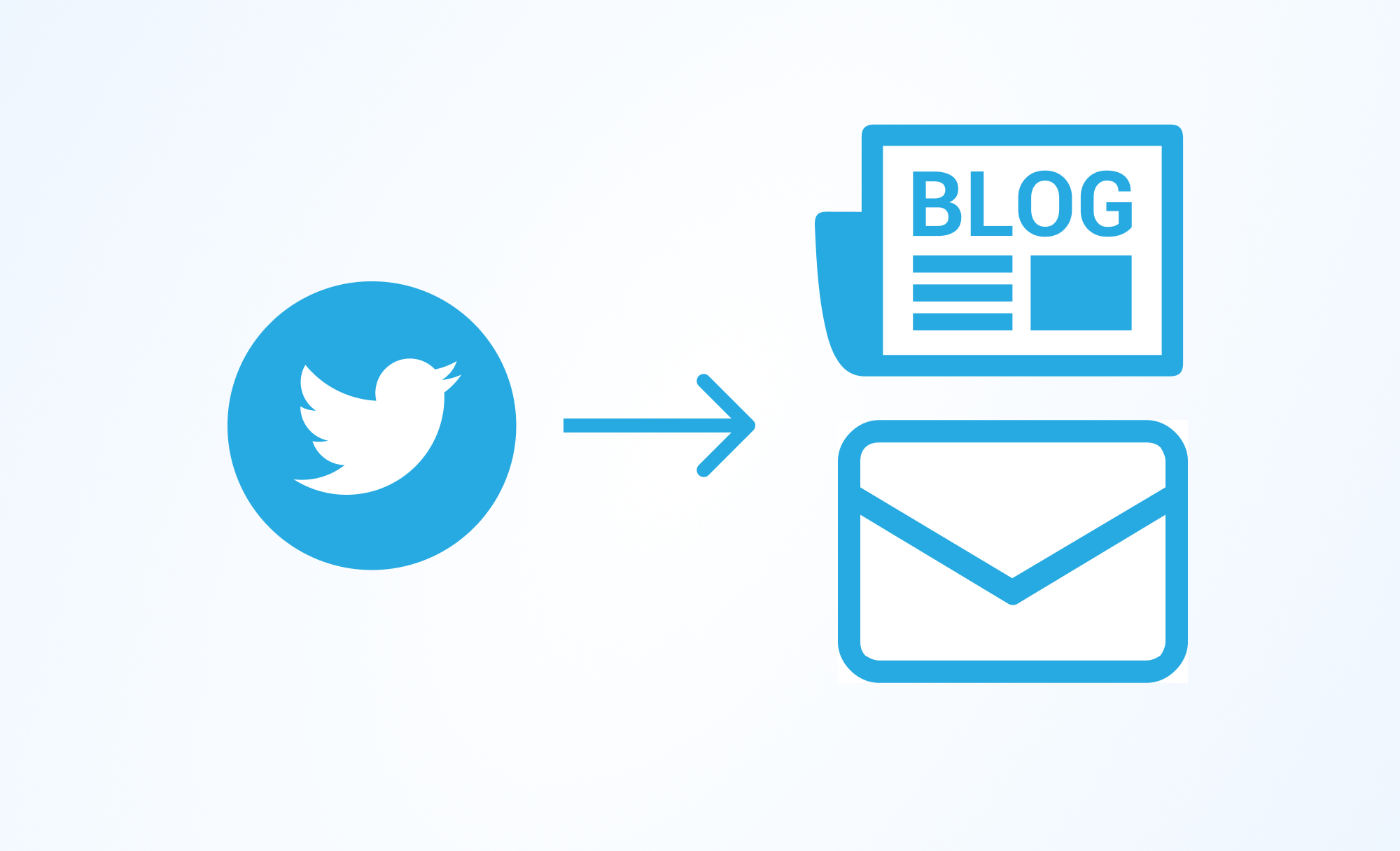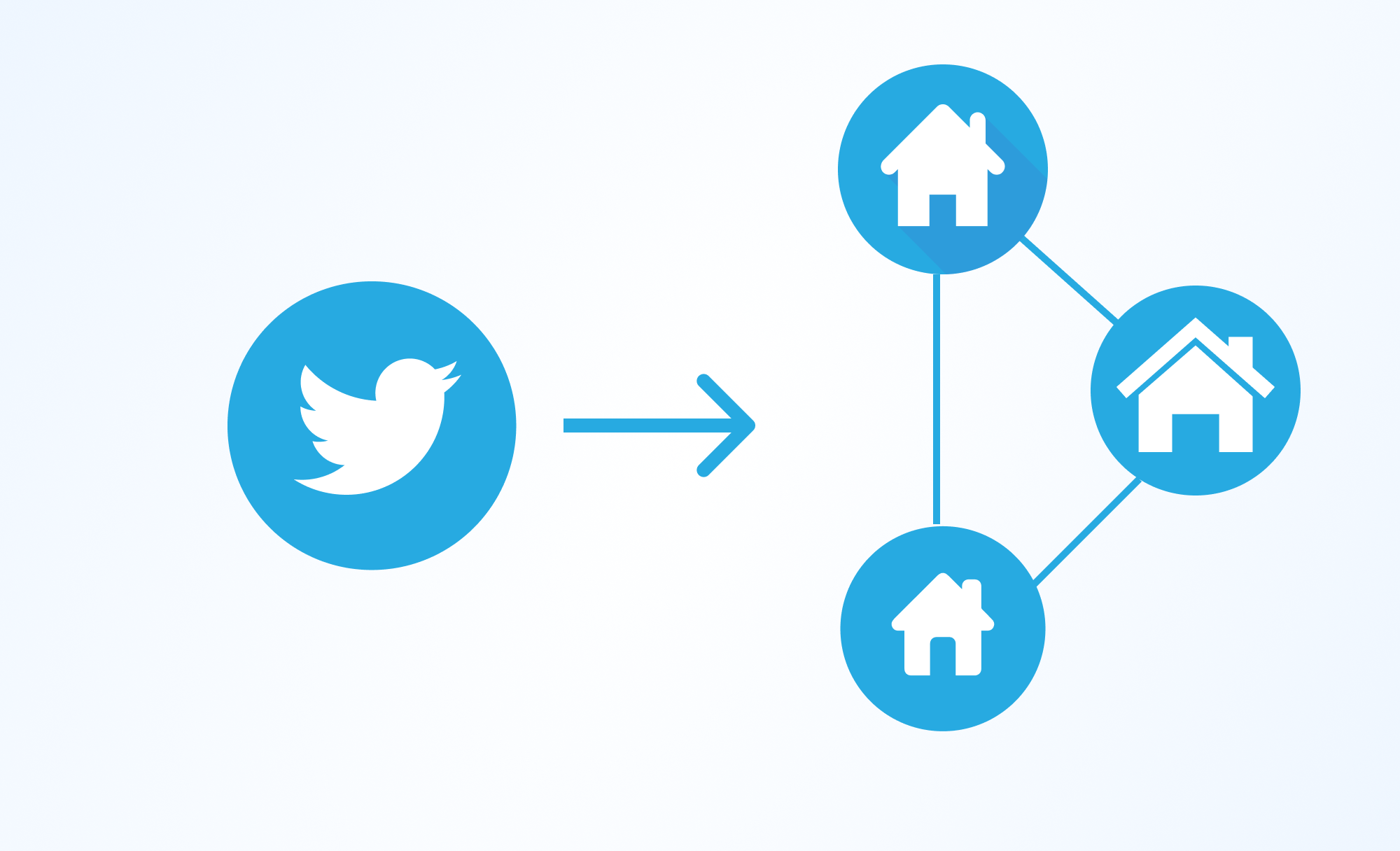How to Gradually Exit Twitter
Set up paid newsletters at custom domains. Then start networking them together into decentralized media.

The hacks are the last straw. We need to exit Twitter.
But you may be invested in Twitter! So what do you do? Here's one recipe for gradual exit.
- Step one is to set up an (optionally pseudonymous) newsletter at your own custom domain using the instructions here. You can do this in an hour and maintain it for less than $30 per month. Then only tweet out posts from your site, using your domain name as a simple form of authentication.
- Step two is to start building your membership list at your own site. If you want, help us review open source tools to export your Twitter following to an email list and mass delete any DMs.
- And step three is to get off Twitter all together, and start building a decentralized media ecosystem that combines the sovereignty of individual domain names with the community of social networking. The v1 of that is a simple joint RSS feed that aggregates multiple independent newsletters, but we can get much more sophisticated with tech for the decentralized web. It may turn out that what we build helps reform Twitter itself, but at a minimum it will present an alternative.
Before we get there though, let's go through the problems with Twitter.
The Problems with Twitter
It's not just the hack. There are several overlapping issues with Twitter around security, authentication, pseudonymity, distribution, incentives, and culture.
- Twitter is insecure. It was a mistake to think that personal security could compensate for the fundamental flaw of centralized web services: anyone who gains control over twitter.com gains control over your account. We knew this already from the 2017 incident and the Jack Hack. But now the most prominent people and companies in the world (Bezos, Gates, Zuckerberg, Musk, Apple, Uber, among others) have been openly and publicly hacked. Tomorrow you may be the victim. And unlike these worthies, you may be silently and privately hacked. Perhaps you already have been.
- Twitter is not authenticated. It was a mistake to trust Twitter's centralized verification process to validate everything posted to the service. There weren't any digital signatures to help establish whether the messages were really coming from a user-controlled device, or faked by a central server.
- Twitter is not fully pseudonymous. It was a mistake to use our real names everywhere online, particularly on Twitter. It made us vulnerable to personal and physical attacks. Social media mobs can swarm your real name online and cancel you in real life. Doxxing can heighten the danger by making threats materialize in meatspace. Pseudonymity is a better default, especially now that we can earn under a pseudonym.
- Twitter is a distribution chokepoint. It was a mistake to outsource our distribution to Twitter. Twitter users don't fully control their reach, brand, or monetization. You can be downranked or deplatformed at any time, just like you can on YouTube and other centralized platforms. Owning your own email list is a far better alternative.
- Twitter doesn't create wealth. It was a mistake to have so many people spending so much time on something that arguably destroys more wealth than it creates. Because by default, you don't create wealth on Twitter. You may create wealth for Twitter, or for the media corporations whose links are circulated, but not for yourself or for others. There's no sense of economic alignment with other users, no sense of mutual obligation.
- Twitter turns society into Twitter. It was a mistake to let Twitter set up the incentives for our society. It's not good for the world when the one thing every prominent person knows how to do is fight each other on Twitter for likes and followers. It has converted society into a zero-sum status game played by elites with real consequences. Every day, blue checks compete for a finite pie of attention with ever more sensational posts. There is instant feedback on what is popular, but none on what is true. The lack of economics, the presence of real names, the toxic culture, and the UX itself all encourage constant fighting.
Now, let me qualify these comments. I personally have gotten enormous value out of Twitter, despite all the points above. After all, you only critique the services you use!
And to be clear, Jack Dorsey is a phenomenal entrepreneur. I respect everything he's done and the team that he's built. It's hard to build one multibillion dollar company, let alone two. He's done immense good for the world overall, both through his personal generosity and his startup vehicles. And I also don't wish any Twitter employee ill, as many of them are truly great people and I know how hard this stuff is.
Moreover, even after this hack, Twitter will likely continue to be an important internet battlefield for quite sometime. It's just too easy, too convenient. And it may turn out that whatever is built to exit Twitter will end up interfacing with Twitter itself, via their decentralized protocol, if only as a form of training wheels to help people get off. Hopefully this can be done in a win-win way, such that Twitter and its employees are incentivized to allow people to gradually exit and fix the issues on the centralized service.
But it's past time for us to start building something better, that keeps the good aspects of Twitter (the serendipitous learning, the fascinating people) but filters the bad. That may mean exiting to our own domains and then networking them into decentralized media.
Decentralization Starts with a Domain

I may be wrong about this, but I don't think a "better Twitter" starts with a service which is simply a clone of Twitter except with a different community. I think it starts with a community of independent (and independently monetizable) domains that we network together in novel ways, to build decentralized media.
Towards this end, the first step in gradually exiting Twitter is to set up your own paid newsletter at a custom domain (instructions here) and restrict yourself mainly to tweeting out posts. This does require more effort than writing 280 characters! But that's why it's good. Effort helps restore your attention span and improves average post quality. And in addition to the other benefits, the link to your domain doubles as a simple alternative to a digital signature, a way for people to see that the content is authentically yours.
The medium-term step is to develop tools to migrate your followers off Twitter to an email list, and to mass delete all DMs as a precautionary step. If you want to help review some existing tools towards this end, we're working on it here.
The long-term step is to start addressing the issues with Twitter by knitting these individual domains together into an open source decentralized media ecosystem. That means addressing:
- Security by encouraging people to post from their own domains
- Community by building a network around multiple domains
- Authentication by combining domains with digital signatures
- Distribution via memberships and email lists
- Incentives by baking in monetization and economic alignment from the beginning
- Mobs by recommending pseudonymity by default
- Culture by encouraging physical norms of civility
Crucially, unlike past efforts our goal would be to build this community-first rather than technology-first. Specifically, once we get enough paid newsletters set up at their own domains, we can experiment with new decentralized web technologies for linking them together. If you submit your URL to this form, we'll see if we can form a community. We'll probably start with a joint RSS feed and then get more sophisticated.
Oh, and you can signal that you're interested in decentralized media by changing your name on Twitter to your URL, as follows:

Exiting Twitter and building decentralized media will be a long project and we aren't assured of success. But this journey of a thousand miles begins with a single newsletter at your own domain! So set yours up now.
It's time to start gradually exiting Twitter.